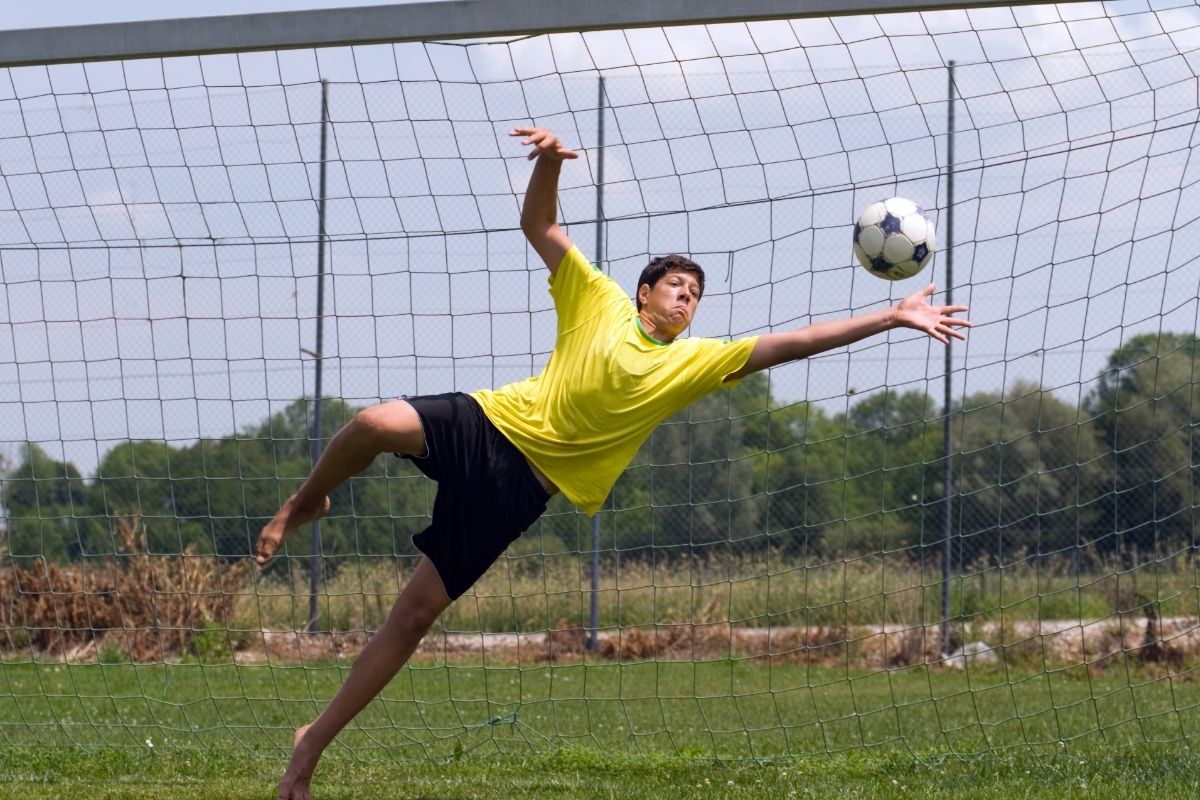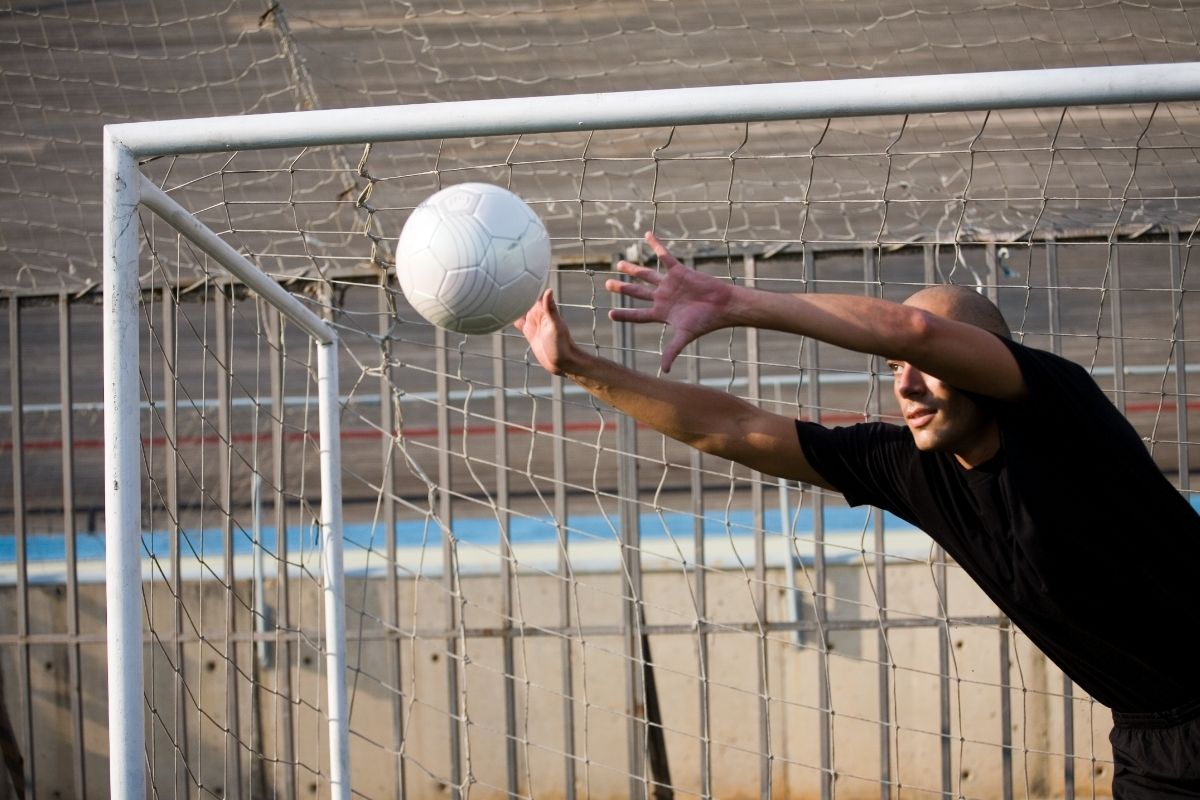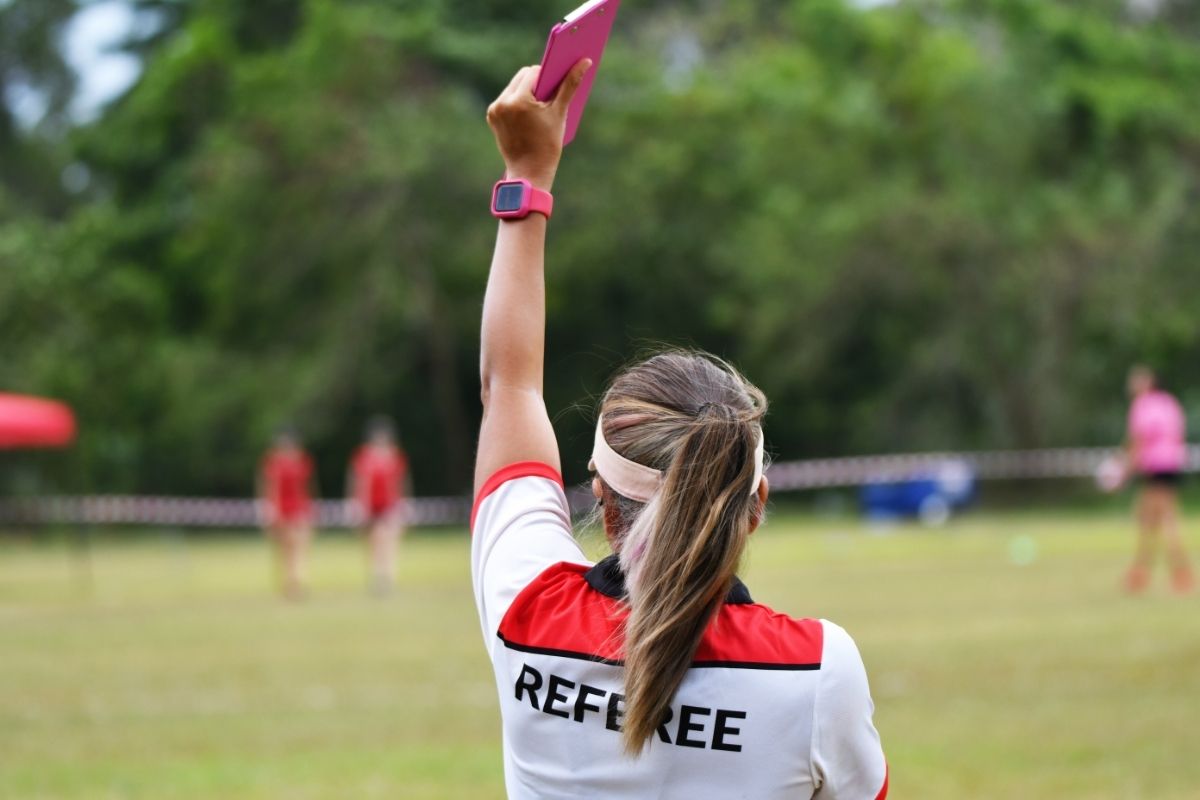The goalkeeper has one of the most important jobs during a soccer game.
They are the designated player who has to stop the opposing team from scoring by blocking every strike they make toward the goal.
However, if you are a player short or your goalkeeper is injured, can a team continue playing without their goalkeeper?


Here we will be taking a closer look at the rules of soccer to see if a team can play without their goalkeeper and what happens if all the designated goalkeepers (including substitutions) cannot play.
This way, you can determine what you need to do in this situation, whether acting as a referee or a player.
So, let’s dive right in!
Can You Play Soccer Without A Goalkeeper?
Unfortunately, there is no way a team can continue playing without a goalkeeper.
The Laws of the Game (the official document of rules designed by the International Federation of Association Football, or FIFA for short) requires that every team has a designated goalkeeper to stand in their goals and protect it from opposing strikers.
Without a goalkeeper, the opposing team will have a huge advantage and be far more likely to score points.
So, to keep things fair, both teams need a designated goalkeeper on the field of play during both halves of a soccer game.
This is why FIFA has included this rule that both teams must have a goalkeeper on the field of play in their Laws of the Game.
It is a vital rule that must be followed so both teams have an equal chance to block the other team from scoring.
Because of this, a referee cannot allow a team to play without a goalkeeper.
A soccer game cannot start until both teams have a maximum of eleven players, including a goalkeeper in position at their respective goals.
Until this rule is met, a soccer game cannot start.
What To Do When You Haven’t Got A Goalkeeper
It’s very rare that this event ever occurs (especially in professional matches), but it’s not impossible.
Sometimes, injuries or illness may leave a team without a designated goalkeeper or a substitute goalkeeper to take their place.
Perhaps, if you are playing soccer for fun, you may be short on players, so how can you continue playing soccer without a goalkeeper?
If you are a goalkeeper down, you have to find a replacement.
Without a goalkeeper, you cannot officially continue gameplay, and if you are playing for fun, you will be at a serious disadvantage that can cost you the game.
After all, even if no one else is on the field, an opposing team cannot win if a goalkeeper blocks every strike they make.
So, you must find a goalkeeper to replace the one you lost – but from where?
Some teams will choose a defender or midfielder to take over as goalkeeper in this event.
They will still have to play the game with a player down, but they must have someone in the goals for the game to continue.
An alternative move made by some soccer managers is that they will swap out an outfielder with their substitute goalkeeper waiting on the bench.
This is the most common move made by soccer managers as it allows the team to keep a trained goalkeeper on the field to increase their defense, and it still complies with all the rules laid out by FIFA.
Once everyone is back in position, the game can continue, but not before the new goalkeeper is in their new position.
Can Goalkeepers Get A Red Card?


It is possible for a goalkeeper to be given yellow and red cards, just like every other player on the field. However, it is uncommon but not impossible.
If a goalkeeper commits a professional foul, a referee can choose between a free kick, a penalty award, or giving the offending goalkeeper a red card.
Most referees choose the free kick or penalty award, but sometimes, they will choose the red card if it is the best-suited punishment for the foul.
A goalkeeper can also be given a red card if they handle the ball outside the penalty area to deny their opposition a goal or a potential goal-scoring opportunity.
So this means that goalkeepers could also be sent off the field at any point in the game, and this is why many soccer fans get confused about whether the game can continue without the goalkeeper.
If a goalkeeper is sent off the field via a red card, the team must substitute the goalkeeper.
They will choose between the methods mentioned earlier: either have an outfield player step in or swap out an outfielder with a substitute goalkeeper.
Either way, the team will still be down a player and still have a goalkeeper to comply with FIFA’s Laws of the Game.
Conclusion
So, can a referee allow a team to play without their designated goalkeeper?
No, they cannot – it is stated in FIFA’s Laws of the Game that every team must have a goalkeeper for play to start or continue.
So, a referee must stop play until a substitute goalkeeper is in place for the team; otherwise, they would be breaking FIFA’s Laws of the Game.
This event can occur.
Goalkeepers can commit fouls and be given red cards just like every other player on the field, plus they could be injured and sent off because they can no longer play.
In these events, then a replacement goalkeeper must be found.
A soccer manager will either send the substitute goalkeeper out (swapping out an outfielder in the event of a red card) or have an outfield player don the gloves and step into the goal to act as goalkeeper.
Only then can the game continue.
- Can You Play Pickleball on Grass? Tips and Tricks - June 12, 2023
- Do Pickleballs Wear Out? Everything You Need to Know - June 12, 2023
- Can You Play Pickleball on Concrete? A Guide to Playing on Hard Surfaces - June 12, 2023








